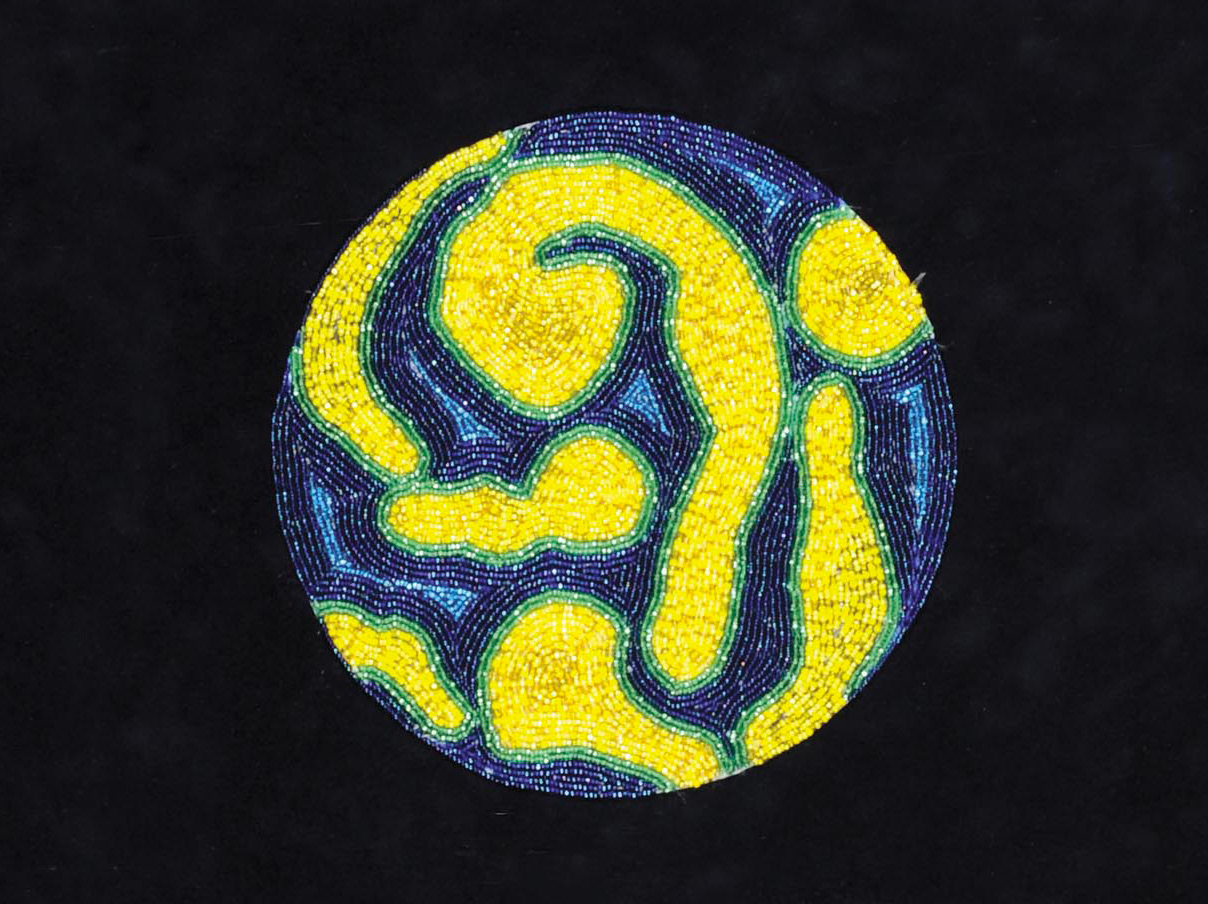ART NEWS
Beaded Images of Disease Explore the Impact of Colonial Trade
[ad_1]
In her series Trading, Saskatchewan-based artist Ruth Cuthand creates a visual metaphor that outlines how early settler/Native relationships influenced First Nation people’s living conditions and wellbeing in Canada. The colorful works are created from beads which were traded by European settlers for furs in the Americas. Although dazzling aesthetically, the work’s content reveals images of deadly viruses passed on by settlers as a result of this trade, such as influenza, bubonic plague, measles, smallpox, typhus, cholera, and scarlet fever.
“Beads are a visual reference to colonization; valuable furs were traded for inexpensive beads,” explains Cuthand, an artist of Plains Cree and Scottish descent, in her statement about the project. “On the plains beads were a valuable trade item, they replaced the method of using porcupine quills. Preparing the quills for decorating clothing was a long process that consisted of sorting the quills, preparing vegetal dyes and flattening the quill to sew down in patterns. Obviously beads were quicker to use, covered large areas and came in a wide variety of colors.”
Trading explores the tragic impact of European disease through the lens of one import. You can see all of the works in the series, and learn more about Cuthand’s practice, by visiting her website. The artist will also be a part of Beading Now!, a group exhibition at La Guilde in Montreal, Canada, which runs from May 16 to July 21, 2019.
“Influenza” (2009), Beads and acrylic on suede board, 24″ x 18″, collection of the Saskatchewan Arts Board
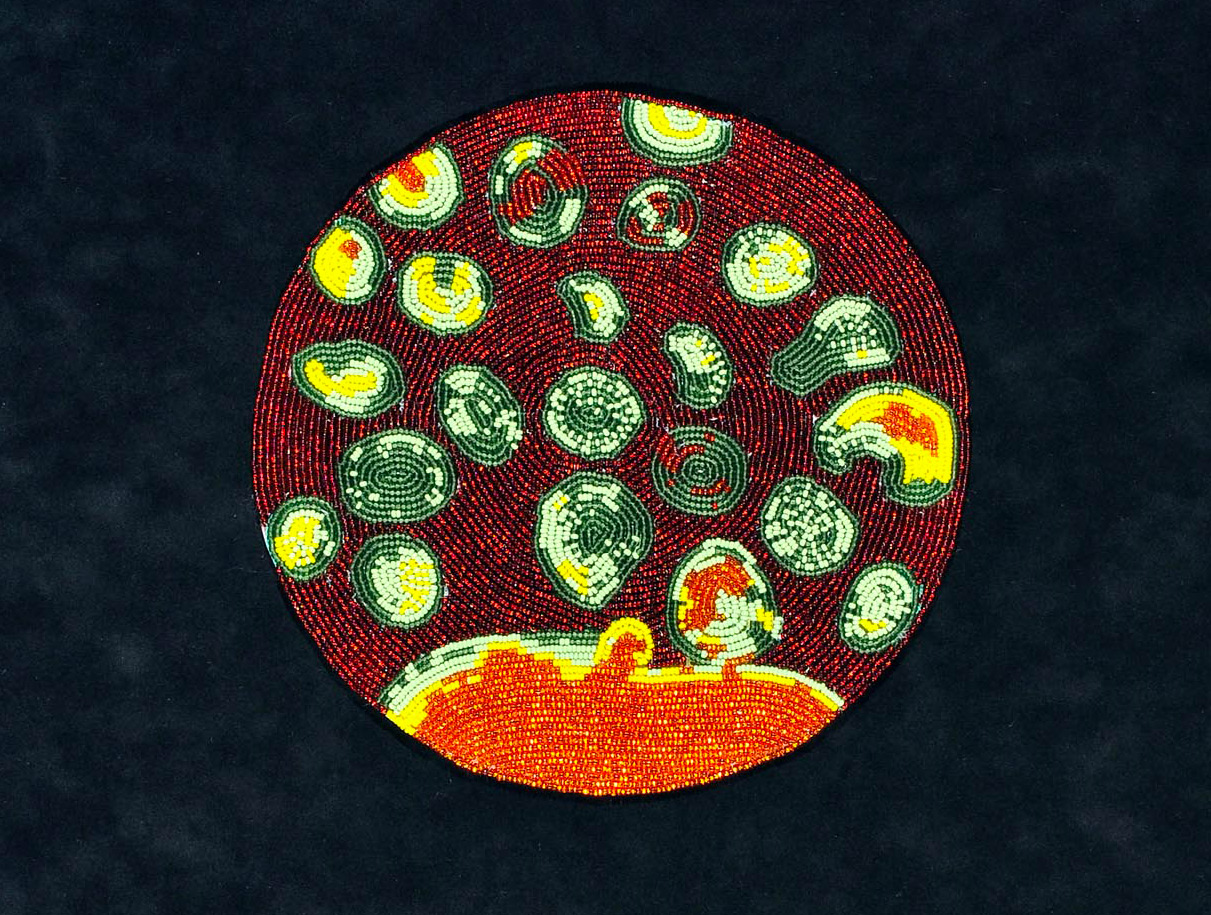
“Measles” (2009), Beads and acrylic on suede board, 24″ x 18″, collection of the MacKenzie Art Gallery
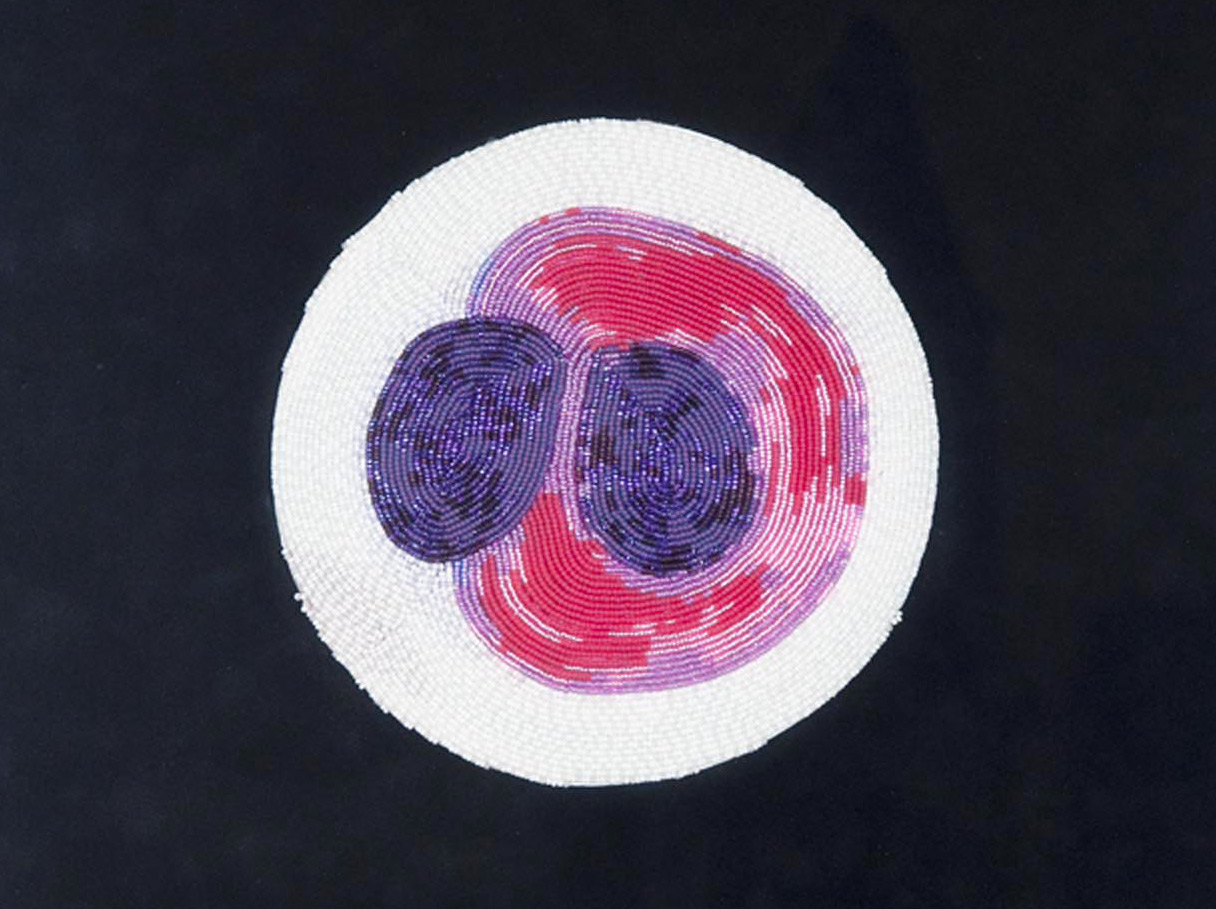
“Bubonic Plague” (2009), Beads and acrylic on suede board, 24″ x 18″, collection of Wally Dion
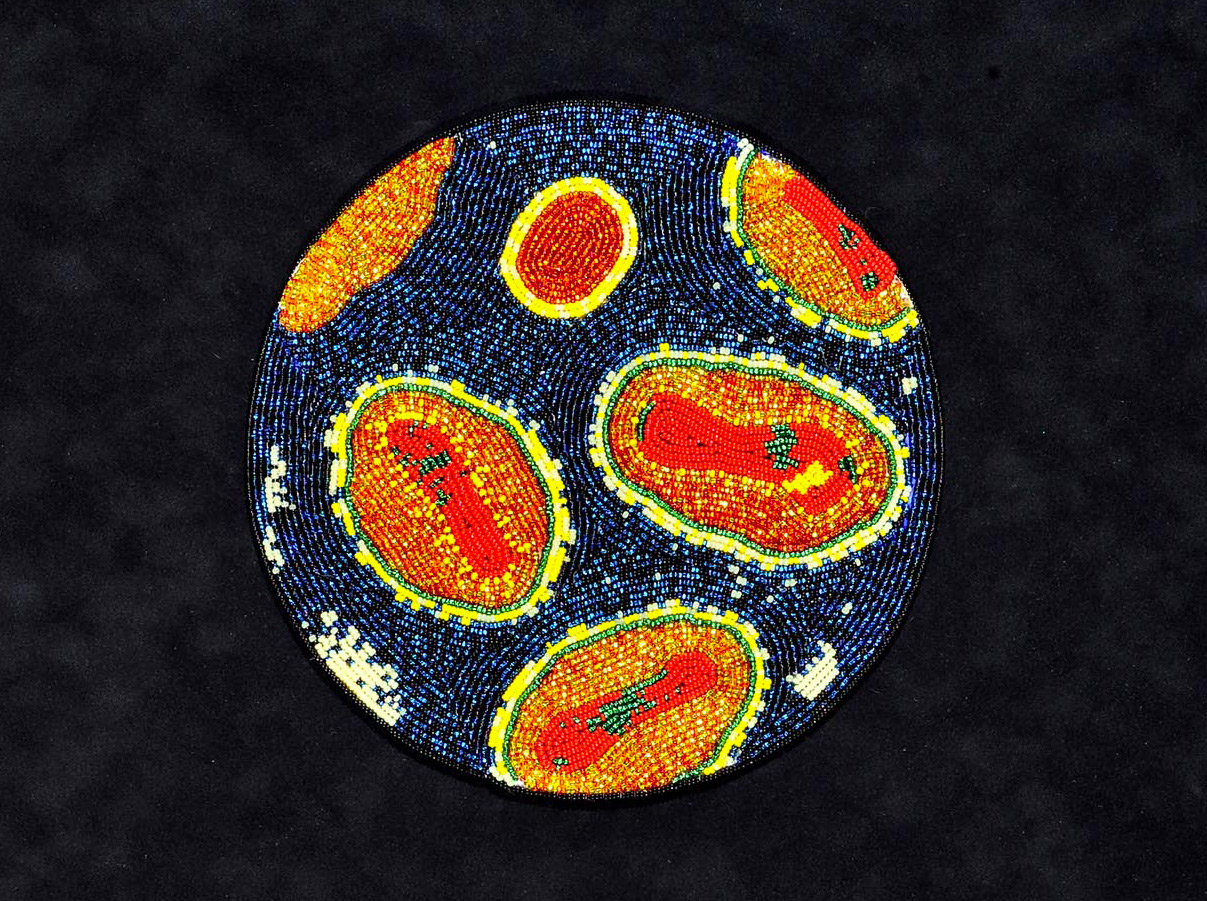
“Smallpox” (2009), Beads and acrylic on suede board, 24″ x 18″, collection of the MacKenzie Art Gallery
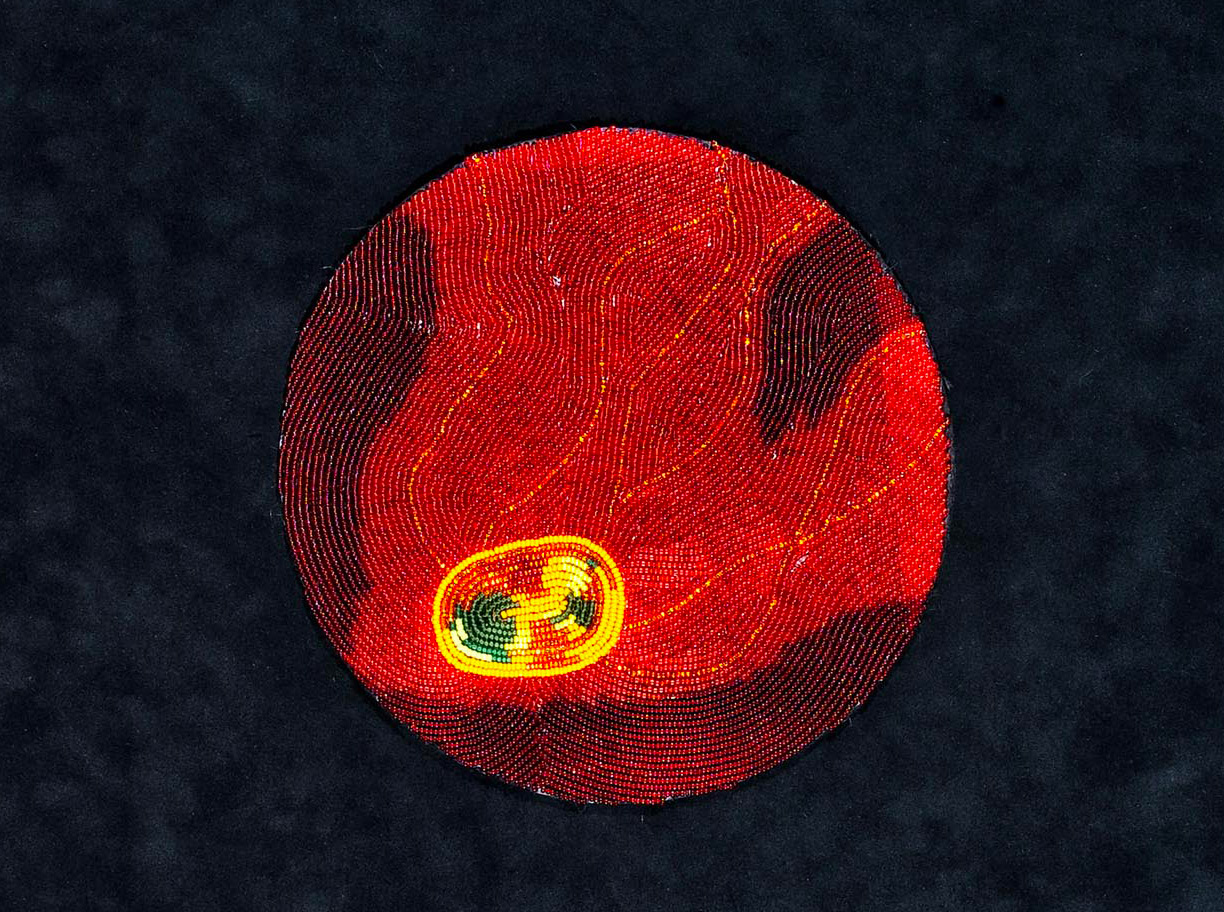
“Typhoid Fever” (2009), Beads and acrylic on suede board, 24″ x 18″, collection of the MacKenzie Art Gallery

“Whooping Cough” (2009), Beads and acrylic on suede board, 24″ x 18″, collection of the MacKenzie Art Gallery
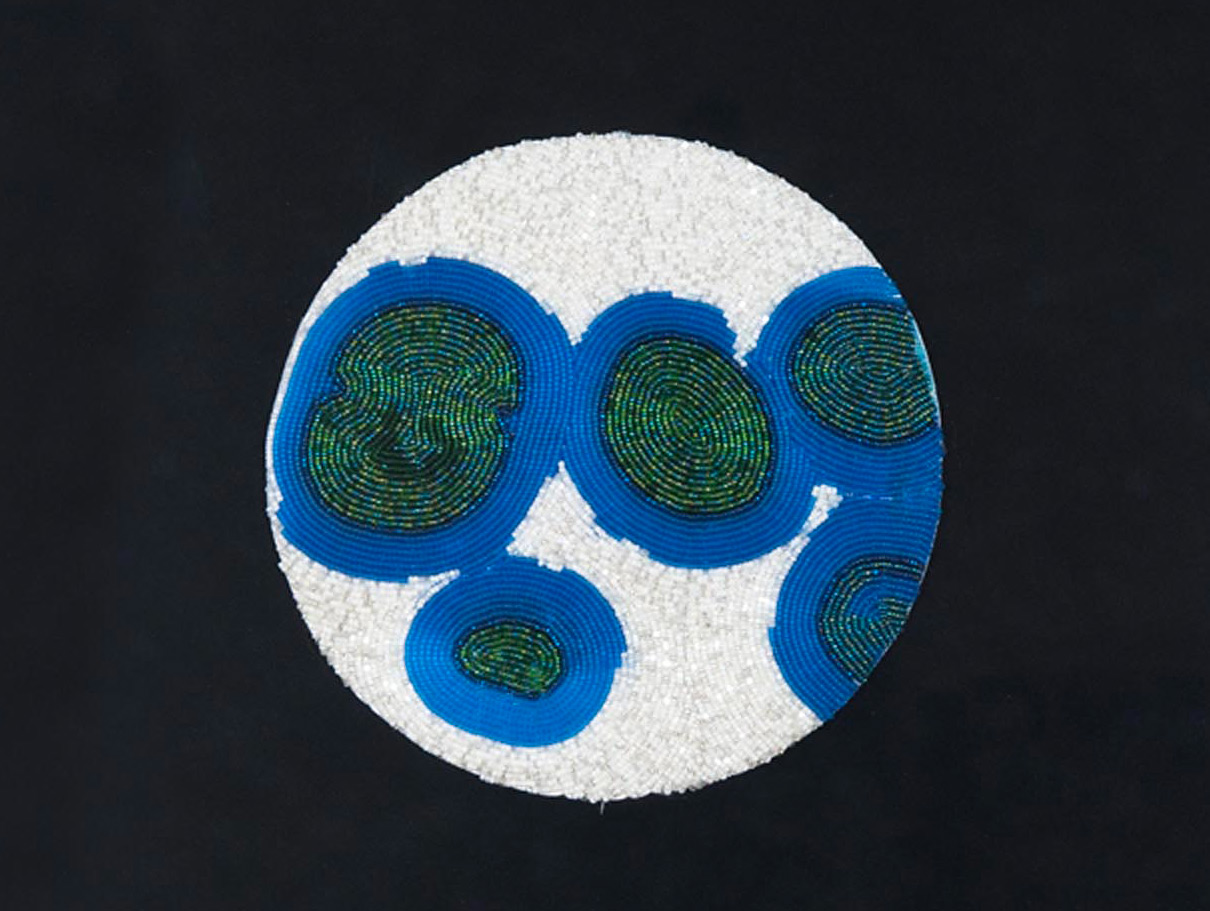
“Yellow Fever” (2009), Beads and acrylic on suede board, 24″ x 18″, collection of the Mendel Art Gallery
[ad_2]
Source link



